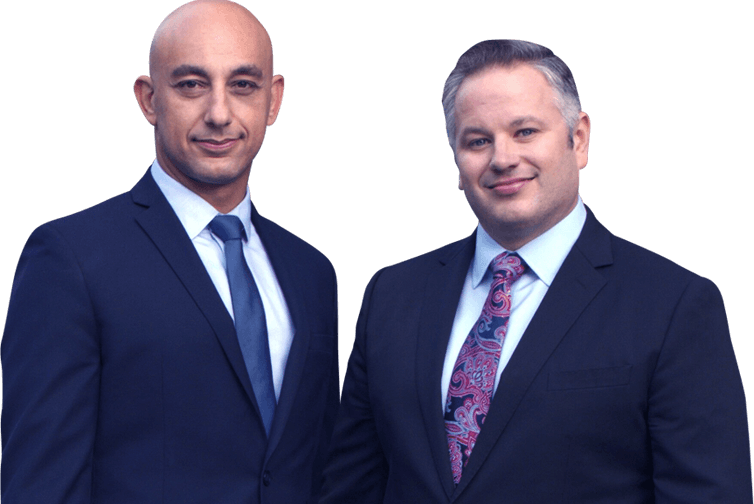Personal injury cases are among the most common types of lawsuits in the United States. If you’re pursuing a claim in Los Angeles, it’s likely your first encounter with the legal process, which can seem daunting.
It is understandable if you’re wondering “how long will my personal injury case take?”
This post will provide a closer look at the personal injury lawsuit process, including possible timelines to better prepare you.
What to Expect in a Personal Injury Lawsuit
1. Choosing a Personal Injury Attorney
The journey begins when you select an attorney experienced in Los Angeles personal injury law. It’s crucial to choose a lawyer who understands local regulations and has a proven track record. Imagine you’ve suffered an injury due to a slip and fall at a local grocery store. Choosing an attorney who has handled similar cases in Los Angeles County can provide a tactical advantage.
2. Filing the Lawsuit
Your attorney will file necessary court documents to officially start your claim. This includes a complaint against the party responsible for your injury.
3. Discovery Phase
This critical phase involves gathering facts from both sides. Your lawyer will collect medical records, witness statements, and possibly expert testimonies. Your attorney might request other types of evidence, such as video footage to support your claim. This step might last for six months to a year, depending on the complexity of a case and the court’s deadlines.
Mediation
Before trial, there are often negotiations to try to settle the case without a court hearing. These meetings can sometimes lead to a faster resolution.
A mediator, who is often a former or current judge, oversees mediation between the parties to avoid trial. This involves an informal proceeding in which the parties attempt to reach an agreement.
Depositions
As part of the discovery phase, depositions are arranged. Depositions are meetings in which both parties and any witnesses are interrogated under oath.
5. Trial or Settlement
If a settlement isn’t reached, your case will go to trial. Most trials last a few days, but complex cases can take longer. Following the trial, a verdict is reached, and compensation is awarded if your claim is successful.
6. Post-Trial Appeals
Either party can appeal the court’s decision, which can extend the timeline significantly.
Understanding California’s Statute of Limitations
In California, for personal injury claims, you generally have two years from the date of injury to file a lawsuit. Missing this deadline can prevent you from ever pursuing your claim.
How to Expedite Your Personal Injury Case
While personal injury cases can be complex, there are steps you can take to potentially speed up the process:
- Maintain thorough records of all medical treatments.
- Be proactive in communication with your lawyer.
- Consider mediation or other alternative dispute resolution methods to encourage a quicker settlement.
What Factors Affect Personal Injury Lawsuit Duration?
The duration of a personal injury claim could be influenced by a variety of factors, which can cause the timeline to vary greatly from case to case. Here are some key factors that affect how long it might take to resolve a personal injury claim:
- Complexity of the Case: Cases involving complex legal issues, multiple parties, or severe injuries generally take longer to resolve due to the need for extensive evidence gathering, expert testimony, and more intricate legal arguments.
- Severity of Injuries: The more severe and complicated the injuries, the longer it might take to fully determine the victim’s long-term prognosis and total medical expenses. Settlements are often delayed until the plaintiff reaches maximum medical improvement (MMI) to accurately assess damages.
- Amount of Damages Claimed: Higher stakes claims with substantial amounts of money involved can lead to longer negotiations and, potentially, trials, as both sides fight harder to justify their position.
- Willingness to Settle: The disposition of both parties towards settlement can greatly affect the duration. If both parties are open to negotiation and can find common ground, the case may be resolved much faster through mediation or settlement discussions.
- Legal and Factual Disputes: If there are significant disputes over the facts of the case or the applicable law, resolution can be delayed. Disputes might involve liability issues, the cause of injuries, or interpretations of the law.
- Insurance Company Involvement: The policies and practices of the insurance companies involved can impact the duration of a claim. Some insurers may prolong negotiations intentionally, while others might aim for a quicker settlement.
- Jurisdictional Issues: The legal procedures and backlog of the court system where the lawsuit is filed can affect the timeline. Some jurisdictions process cases faster than others due to differences in procedural requirements and caseload.
- Appeals: If either party is dissatisfied with the trial outcome and decides to appeal, this can extend the duration of the case significantly.
Being aware of these factors can help set realistic expectations regarding the timeline of your personal injury lawsuit. Each case is unique, and discussing these aspects with your attorney can provide a clearer outlook on how long your specific case may take.
A Typical Timeline for a Los Angeles Personal Injury Case
Here’s what a typical personal injury case might look like, from start to finish:
- Notification and Attorney Retention: It can take up to 30 days to notify the defendant and for them to retain an attorney.
- Discovery and Fact-Checking: This stage usually lasts several months but can extend longer if complex evidence is involved.
- While many personal injury cases have the potential to proceed to trial, the majority are resolved earlier through mediation. In this stage, both parties come together to negotiate an agreement, thereby reaching a settlement that avoids the need for a trial. This not only expedites the resolution process but often results in a more mutually agreeable outcome.
- Trial: A straightforward trial might last a week, while more complex cases could extend longer.
- Appeals: If an appeal is filed, resolving it can take additional months or even years.
- Settlement Collection: Once all appeals are settled, the collection of the awarded settlement begins.
Learn More About the Length of Your Personal Injury Lawsuit

Each personal injury case is unique, especially in a bustling city like Los Angeles. It’s important to discuss your specific situation with a qualified personal injury attorney who can guide you through the process and help manage your expectations. For more information or to schedule a free consultation, contact our law firm today at (213) 985-1120.
Schedule a Free, No-Obligation Consultation From California’s Best Trial Attorneys
"*" indicates required fields

